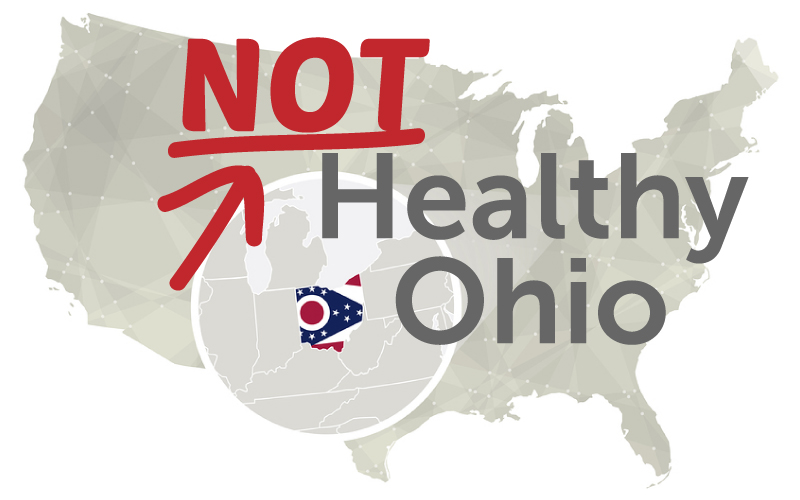Advocates and CMS Agree, Ohio’s Medicaid Waiver is Not Healthy for Ohio
Last week, the Centers for Medicaid and Medicare Services (CMS) rejected Ohio’s “Healthy Ohio” Medicaid waiver proposal, which included provisions that would have undermined health coverage for many low-income Ohioans. Among other changes, the state requested permission to require low-income Ohioans to pay premiums into health savings accounts or else have their health coverage suspended. In their announcement, CMS noted its concern “that these premiums would undermine access to coverage and the affordability of care, and do not support the objectives of the Medicaid program.” Ohio’s Department of Medicaid estimated the waiver’s provisions would result in 126,000 low-income Ohioans losing their coverage.
 For over a year, our partners at UHCAN Ohio directed a targeted, grassroots campaign elevating the voices of low-income Ohioans from across the state to protect Medicaid expansion. UHCAN mobilized hundreds of consumers through conference calls, webinars, and community presentations to express their concerns about Healthy Ohio. Through their community presentations alone, UHCAN was able to reach over 600 community members and collaborate with over 70 community and faith-based organizations. Advocates spread the word about Healthy Ohio’s provisions, their impact on low-income Ohioans and opportunities to shape the waiver process. Nearly 1,000 comments were submitted during the state public comment period alone, overwhelmingly in opposition to Healthy Ohio. By ensuring that Ohio Medicaid beneficiaries retain their health coverage, CMS’s decision to reject Healthy Ohio strengthens advocates’ efforts to reduce health disparities experienced by low-income communities of color.
For over a year, our partners at UHCAN Ohio directed a targeted, grassroots campaign elevating the voices of low-income Ohioans from across the state to protect Medicaid expansion. UHCAN mobilized hundreds of consumers through conference calls, webinars, and community presentations to express their concerns about Healthy Ohio. Through their community presentations alone, UHCAN was able to reach over 600 community members and collaborate with over 70 community and faith-based organizations. Advocates spread the word about Healthy Ohio’s provisions, their impact on low-income Ohioans and opportunities to shape the waiver process. Nearly 1,000 comments were submitted during the state public comment period alone, overwhelmingly in opposition to Healthy Ohio. By ensuring that Ohio Medicaid beneficiaries retain their health coverage, CMS’s decision to reject Healthy Ohio strengthens advocates’ efforts to reduce health disparities experienced by low-income communities of color.
CMS’s decision also sends a strong signal to other states with outstanding waiver proposals that would restrict and threaten Medicaid coverage opportunities. Kentucky Governor Matt Bevin’s recently proposed waiver includes lock-out periods and other requirements that would roll-back the progress made by the state’s successful Medicaid expansion program. Our partners at Kentucky Voices for Health and their grassroots supporters are weighing in during the federal comment period to express concerns on the negative impact Gov. Bevin’s waiver proposal would have on the 430,000 Kentuckians receiving health coverage because of Medicaid expansion.
The outcome in Ohio shows that consumer activism plays an important role in waiver decisions. Strong backing from consumer groups helps CMS resist state efforts to institute barriers to access and care for Medicaid beneficiaries. Other states facing similar proposals should take notice that raising the voices of those affected is necessary and important. Ultimately, consumer health advocates, their coalition partners and their supporters will need to continue to play a pivotal role weighing at all stages of the waiver process to ensure the consumer voice is heard and to shape the narrative around waiver proposals negatively impacting low-income people.
